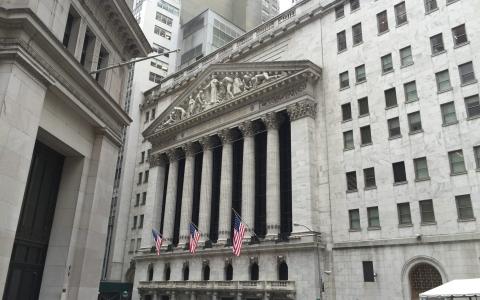
Risk appetite is once again en vogue on Wall Street, with investors casting aside their apprehensions in favor of more bold and adventurous investment strategies.
The once-prevalent fears surrounding inflation, which had surged to a peak not seen in four decades at over 9%, and the Federal Reserve's rate increases from near-zero to over 5% have dissipated. Concerns regarding bank instabilities, the strains on commercial real estate, and the potential economic downturn driven by consumer and business financial stresses have receded into the background.
The apprehension surrounding significant international conflicts, a global economic slowdown, a stagnant real estate market, political turmoil, and an overinflated AI sector is now overshadowed by the allure of potential profits. While a segment of investors remains cautious, the prevailing market sentiment has shifted towards optimism, spurred by strong growth indicators, stable employment figures, and the anticipation of the Federal Reserve reducing interest rates in the latter part of the year.
Wall Street is optimistic about achieving a 'soft landing'—a scenario where inflation is controlled without leading to increased unemployment or an economic recession. The anticipation is that riskier assets, like stocks, will become more attractive as interest rates decline, diminishing the returns from safer investments such as Treasury bonds and savings accounts. "The current climate is conducive to risk-taking," according to a recent analysis by the BlackRock Investment Institute, which also highlighted the market's enthusiasm for AI-related stocks like Nvidia, predicting that this excitement could extend to a broader range of securities.
"We have increased our investment in U.S. stocks this year, anticipating that the positive sentiment towards risk will continue and expand beyond just the AI sector," the institute noted, while also cautioning that inflation could resurface as a concern later in the year.
Echoing this sentiment, analysts at Goldman Sachs have projected an uptick in risk appetite for the year, buoyed by the easing recession fears and anticipated rate reductions, which they believe will encourage investors.
Despite the optimistic forecasts for the economy and stock market, it's prudent to maintain a level of skepticism towards the prevailing exuberance. It's beneficial for Wall Street to adopt an optimistic stance, as a positive outlook tends to attract more client investments than a cautious or negative one would. However, this renewed eagerness to embrace risk might simply be the latest manifestation of speculative greed, potentially setting the stage for a harsh downturn.
"Valuations are being largely ignored, with claims of entering a new era being touted by some Wall Street strategists," noted economist David Rosenberg, while Jeremy Grantham, an expert on financial bubbles, has cautioned against expecting a prolonged rally from the current high valuations and full employment—a scenario unprecedented in the history of the U.S. stock market. Grantham has pointed out that high valuations typically lead to diminished long-term returns, placing the future outlook for stocks among the most challenging in history.
Even proponents of the market's current trajectory acknowledge the risks associated with too much optimism, suggesting that an eventual correction might be inevitable. "The issue with market surges is that they eventually lead to downturns," stated analyst Ed Yardeni earlier this year.
Investors now face a juxtaposition of optimism, fueled by a brighter economic forecast, imminent rate cuts, and the transformative potential of AI on productivity and corporate earnings, against a backdrop of concerns, including record-high prices across various asset classes, persistent inflation, a recent uptick in unemployment, and ongoing global economic challenges.
For the moment, the fear of missing out on additional gains appears to outweigh concerns over potential losses, which explains the current 'risk-on' mood in the markets. "The drive to not miss out on the AI-fueled rally in major stocks is a key factor right now," noted Ipek Ozkardeskaya, a senior analyst at Swissquote Bank.
Whether this optimism will be rewarded or punished remains to be seen, but for now, those willing to embrace risk are certainly experiencing an exhilarating ride.



